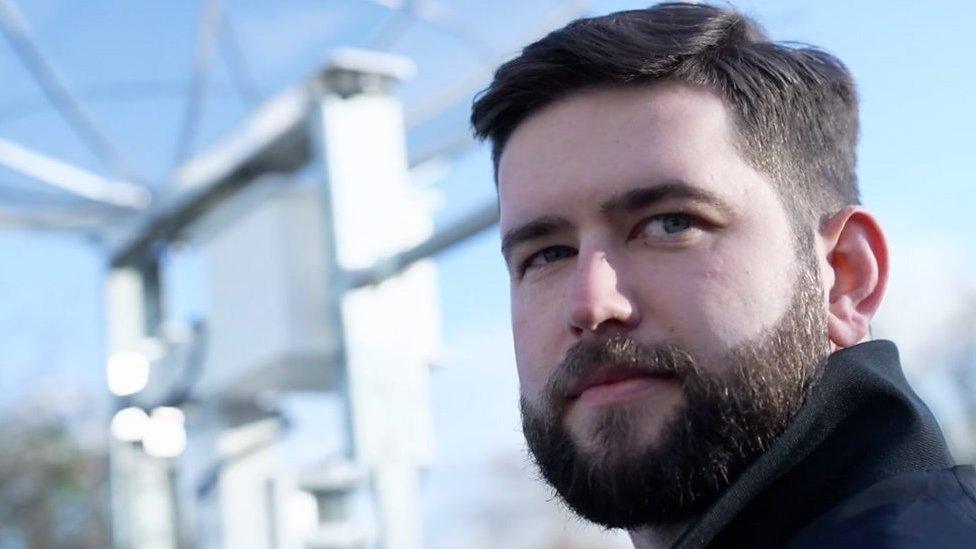The Welshman who aimed for space but was sunk at sea
- Published
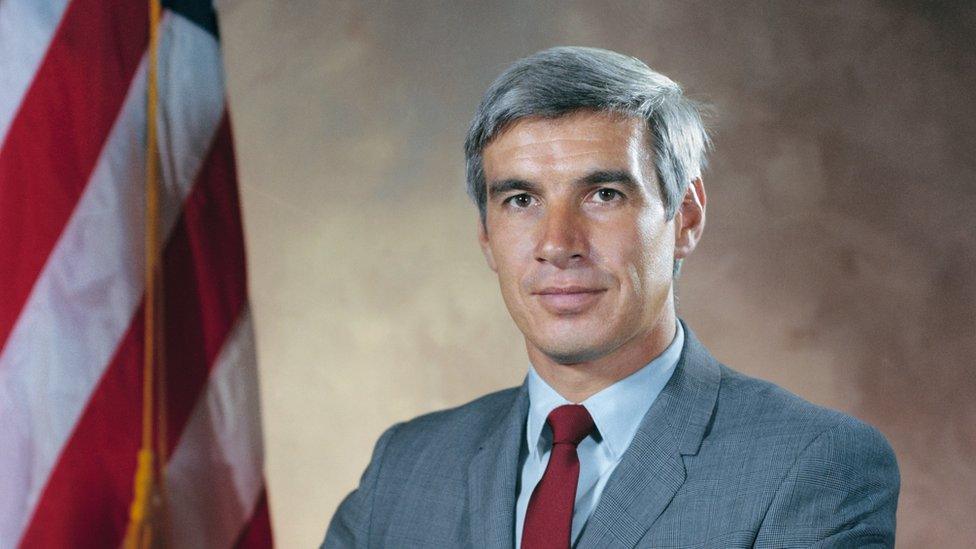
Dr John Anthony Llewellyn applied for Nasa after seeing an ad on a notice board
When Dr John Anthony Llewellyn applied to be an astronaut he never expected to end up living on the seafloor.
He had set his sights a little higher - at least in terms of altitude - and dreamed of going to space after replying to a notice board advert.
Nasa was expanding its space exploration plans and needed scientists.
In August 1967 the chemistry expert became one of only 11 people to be accepted.

Dr Llewellyn, first on the right in the front, was part of the "excess 11", pictured here
He was one of the first two Nasa astronauts who were not USA-born. The other was his colleague Dr Phillip Chapman, an Australian.
The men were the sixth group of Nasa-appointed astronauts. They became known as the "Excess 11" as there was no mission planned for them.
When he got the job, dad-of-three Dr Llewellyn's ambition was to "make a successful flight, do some good experiments and get some good first-class science out of it".
The fact the 11 were scientists and not pilots meant the group differed from most astronauts.

The scientist, fourth from right, did not take easily to flying fast jets
So Dr Llewellyn, from Adamsdown, Cardiff, and the others had to spend 13 months receiving jet pilot training.
But a few months into the course, at Houston's Johnson Space Centre, the former Cardiff High School pupil realised flying fast planes wasn't for him.
In August 1968, less than a year before man walked on the moon, he decided to leave the space agency.
Having attempted to reach for the stars, his next step ironically would see him opt to plumb the depths.
Dr J Anthony Llewellyn talks about his new job with Nasa in 1967
He had been taught to dive by oceanographer Jacques Cousteau, and during the 1960s had been Florida State University's diving course training director.
So in 1971 he began working with the National Oceanic and Atmospheric Administration (NOAA).
For the next five years he spent much of his time living and working in a big yellow pod at the bottom of the sea as part of a science and technology programme.
Anchored a mile from Grand Bahama, this was the hydrolab - NOAA's first undersea research habitat.
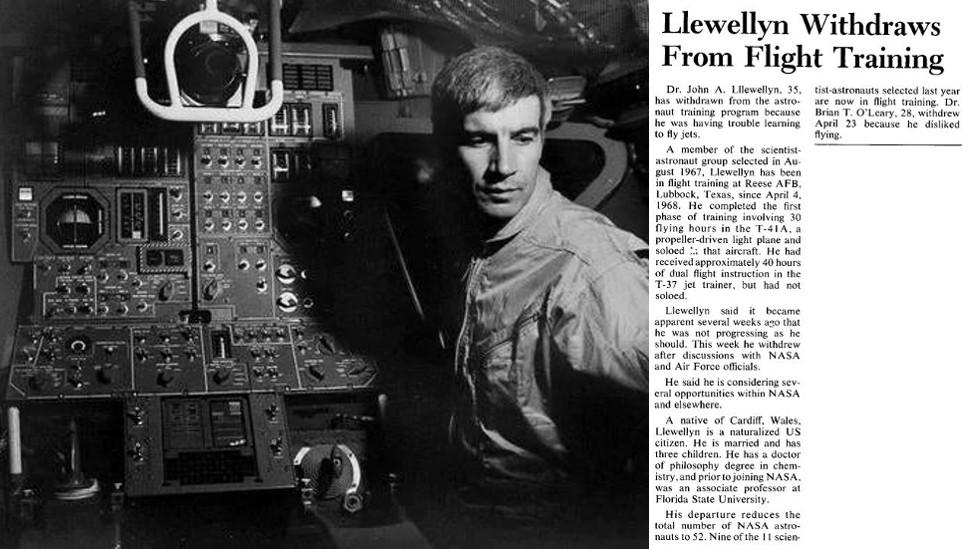
He left the space programme a year before man landed on the moon, as detailed in Nasa's newspaper Roundup, on 30 August 1968
Inside it the scientists had everything they needed to live there for up to a fortnight. There was space for four, but only three beds, so they slept in shifts.
At the end of each stint he spent 16 hours in a decompression chamber so he didn't get the bends - caused by bubbles forming in the blood.
He was in his element and when he wasn't dodging tiger sharks, he conducted experiments.
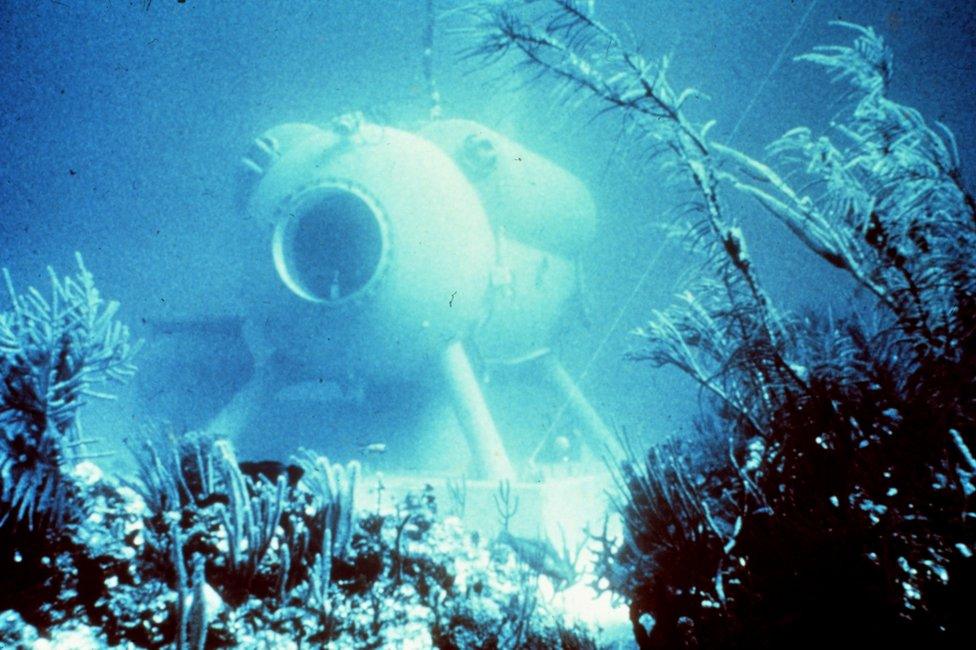
After leaving the space agency he began working in the hydrolab on the ocean floor
When he died on 2 July 2013, aged 80, Dr Llewellyn was at Florida State University, now emeritus professor of chemical and biochemical engineering.
His family were unsurprised by his eventful life.
His brother, David, recalled his older sibling had an adventurous spirit when they were children when living on Moira Street, Adamsdown.
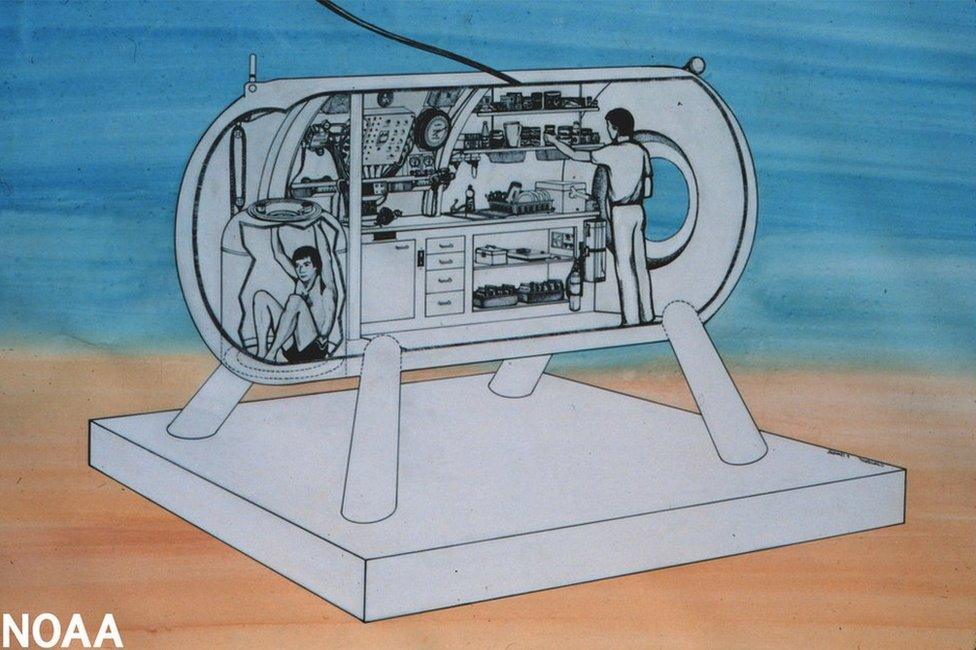
It had everything scientists needed to live and work underwater
David, who was four years junior, said: "He always came up with crazy ideas that I helped him with a little, like making a parachute out of thin sacks and jumping out of the bedroom window.
"As a teenager he became interested in motorcycles and the fun that goes with them."
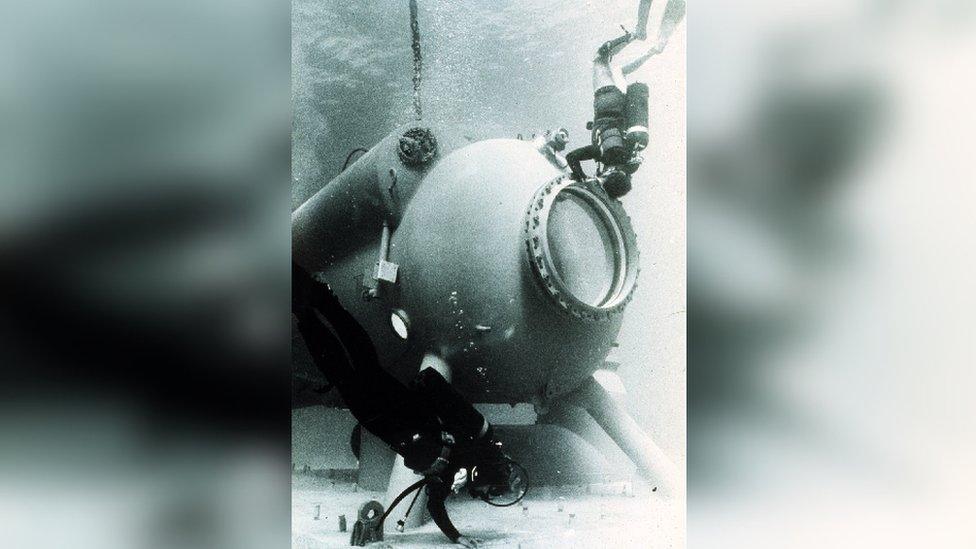
Between 1966 and 1985, 700 scientists called the underwater lab home
In his later years, his daredevil spirit remained.
In 1992 he sailed the Atlantic from Gibraltar to Antigua, and from Miami to the Azores in 2000.
"He was the ultimate adventurer," said David.
Related topics
- Published22 January 2023
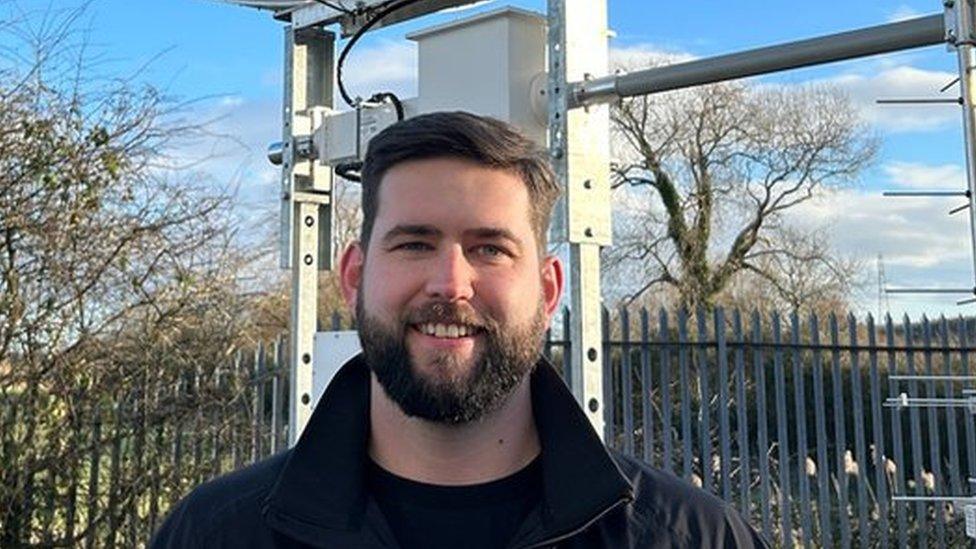
- Published21 February 2022
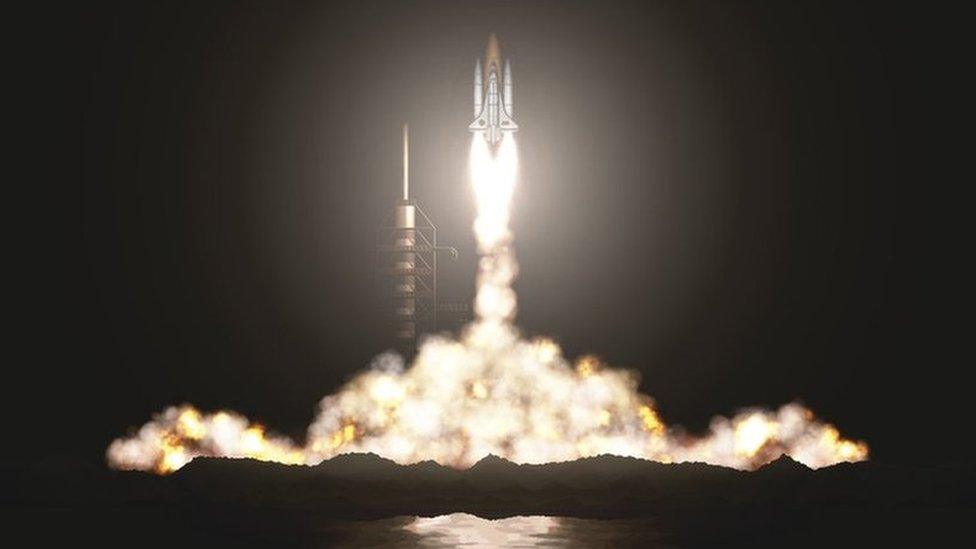
- Published22 January 2023
